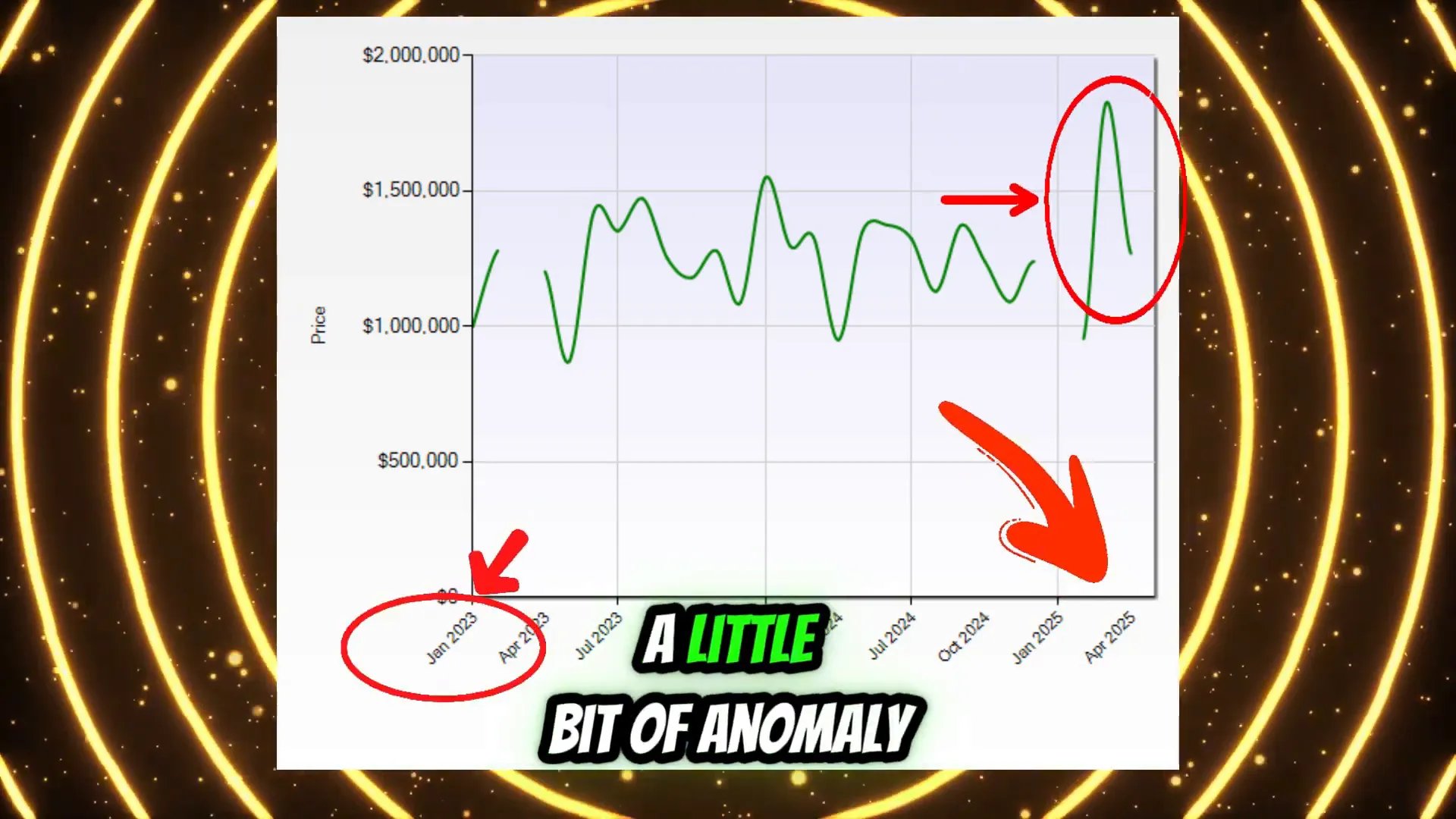Real Estate Market Forecast: Save Thousands on Your Mortgage with This Simple Hack
In this Real Estate Market Forecast, discover how a simple change in your mortgage payment schedule can save you thousands of dollars and pay off your loan faster. Learn the benefits of switching to bimonthly payments and how this small adjustment can significantly impact your financial future.
💰 Introduction to Bimonthly Payments
Bimonthly payments represent a strategic shift in how homeowners manage their mortgage obligations. Instead of the traditional monthly payment schedule, bimonthly payments split the monthly amount into two payments made every month. This adjustment not only accelerates the repayment process but can also lead to substantial savings in interest over time.
Understanding the dynamics of bimonthly payments is crucial for anyone looking to optimize their mortgage strategy. In the following sections, we will delve into the specifics of traditional mortgage payments, define bimonthly payments, and explore the financial benefits associated with this approach.
🧾 Understanding Traditional Mortgage Payments
Traditional mortgage payments typically follow a monthly schedule. Homeowners make 12 payments each year, which cover both principal and interest. This structure, while straightforward, can extend the life of the loan and increase the total amount paid over time due to the interest accrued.
For example, with a standard 30-year mortgage, the cumulative interest paid can be significant. Homeowners often find themselves in a cycle of long-term debt, making it challenging to build equity in their homes. Understanding this framework is essential for recognizing the benefits of alternative payment options like bimonthly payments.
🔍 What are Bimonthly Payments?
Bimonthly payments involve making payments every two weeks instead of once a month. This system results in 26 payments annually, equivalent to 13 monthly payments instead of 12. The additional payment directly reduces the principal balance, leading to lower interest costs over the loan's life.
This payment strategy can effectively shorten the loan term, allowing homeowners to pay off their mortgages faster. For many, this means financial freedom sooner than expected. It's important, however, to assess whether your lender allows this payment structure without incurring additional fees.
💸 The Financial Benefits of Bimonthly Payments
Switching to bimonthly payments can yield significant financial benefits. One of the primary advantages is the reduction in overall interest paid over the life of the loan. By making an extra payment each year, homeowners can decrease the principal faster, which directly impacts the interest calculations.
For instance, on a $300,000 mortgage at a 4% interest rate, making bimonthly payments could save thousands in interest and potentially reduce the loan term by several years. This financial strategy allows homeowners to build equity more rapidly, providing a greater return on investment.
📈 Potential Savings with a Bimonthly Payment Plan
The potential savings from adopting a bimonthly payment plan can be substantial. Consider a scenario where a homeowner switches from monthly to bimonthly payments on a $500,000 mortgage with a 3.5% interest rate. Over 30 years, this could equate to savings of over $100,000 in interest.
Additionally, homeowners can pay off their loans 5 to 7 years earlier than with a monthly payment plan. This acceleration in repayment not only leads to savings but also reduces the financial stress associated with long-term debt.
💵 Comparing Costs: Monthly vs. Bimonthly Payments
When comparing the costs associated with monthly and bimonthly payments, the difference lies in the total number of payments made each year and the impact on the loan's principal. Monthly payments total 12, while bimonthly payments result in 13 payments.
- Monthly Payments: 12 payments per year, leading to higher total interest paid.
- Bimonthly Payments: 13 payments per year, resulting in reduced principal and interest costs.
Ultimately, the choice between these two payment methods can significantly affect your financial future. With the potential to save hundreds of thousands of dollars, it's worth considering whether bimonthly payments are the right fit for your mortgage strategy.

🏡 Paying Off Your Loan Faster
One of the most compelling reasons to consider bimonthly payments is the ability to pay off your loan faster. By making more frequent payments, you not only reduce your principal balance more quickly but also minimize the amount of interest you pay over time.
For example, if you have a 30-year mortgage, switching to bimonthly payments can potentially shave off 5 to 7 years from your loan term. This means you could own your home outright much sooner, freeing up your finances for other investments or personal goals.
📊 The Mechanics of Accelerated Payments
When you opt for bimonthly payments, each payment is half of your monthly payment, made every two weeks. This results in an extra payment each year, which directly impacts your mortgage balance.
- Example: A $300,000 loan at 4% interest with monthly payments would require $1,432 per month. By switching to bimonthly payments, the amount becomes $716 every two weeks.
- Impact: The additional payment reduces your principal, thus lowering future interest calculations.
This simple change can lead to substantial savings and a quicker path to financial freedom.
⚠️ Considerations and Potential Downsides
While the benefits of bimonthly payments are clear, it’s essential to consider potential downsides. Not all lenders are created equal, and some may impose fees for changing your payment structure.
Before making the switch, ask your lender about any hidden costs or restrictions. Some lenders may charge a fee for setting up the bimonthly payment plan, which could negate some of the savings.
🔍 Understanding Fees and Restrictions
- Setup Fees: Some lenders charge an upfront fee for changing your payment schedule.
- Prepayment Penalties: Be aware of any penalties for paying off your loan early.
- Flexibility: Ensure your lender allows for easy changes back to monthly payments if needed.
Evaluating these factors can help you make an informed decision that aligns with your financial goals.
🔄 Why You Should Make the Switch
Switching to bimonthly payments is a strategic move for homeowners looking to optimize their mortgage payments. The advantages far outweigh the potential downsides for most borrowers.
Imagine saving thousands in interest while owning your home years earlier. It’s not just about the numbers; it’s about achieving peace of mind and financial freedom sooner.
💡 Real Estate Market Forecast Benefits
In a fluctuating real estate market, having less debt can provide security. Paying off your mortgage faster means you can navigate market changes with greater flexibility. Less financial burden allows you to take advantage of investment opportunities as they arise.
Additionally, owning your home outright can make you more attractive to potential buyers if you ever decide to sell, as it demonstrates financial stability.
🗣️ Personalized Advice and Resources
If you're considering making the switch to bimonthly payments, personalized advice can be invaluable. While I am not a lender, I can guide you through the process and help you find the right resources.
Consider reaching out to financial advisors or mortgage brokers who can provide tailored advice based on your unique circumstances. They can help you understand how bimonthly payments fit into your overall financial strategy.
🔗 Useful Resources
- Mortgage Calculators: Use online calculators to see how much you could save.
- Financial Advisors: Consult with professionals to assess your financial situation.
- Real Estate Blogs: Explore articles and tips on managing mortgage payments effectively.
These resources can empower you to make informed decisions that align with your financial goals.
❓ FAQ Section
What are the benefits of switching to bimonthly payments?
Switching to bimonthly payments can save you money on interest and allow you to pay off your mortgage faster, often by several years.
Are there any fees associated with bimonthly payments?
Some lenders may charge fees for changing your payment schedule. Always ask your lender about potential costs before making the switch.
How much interest can I save with bimonthly payments?
The amount varies based on your loan amount and interest rate, but substantial savings—often in the tens of thousands—are common.
Can I switch back to monthly payments if needed?
Most lenders allow you to change back to monthly payments, but it’s essential to confirm this with your lender beforehand.
Where can I find more information on mortgage strategies?
Many online resources, including financial blogs and mortgage calculators, can provide additional insights and strategies for optimizing your mortgage payments.
Categories
- All Blogs (314)
- Client Testimonials (19)
- East Palo Alto (81)
- Graeham Watts Home Tours (23)
- Home Buyer's Process (34)
- Home Tours (28)
- Houses for sale in East Palo Alto (13)
- Investing (18)
- Landlord and Tenant Info (9)
- Menlo Park (49)
- Personal (5)
- Real Estate Questions Answered (91)
- Real Estate Tips (86)
- Redwood City (85)
- San Mateo County (10)
- Seller's Process (22)
Recent Posts










GET MORE INFORMATION

